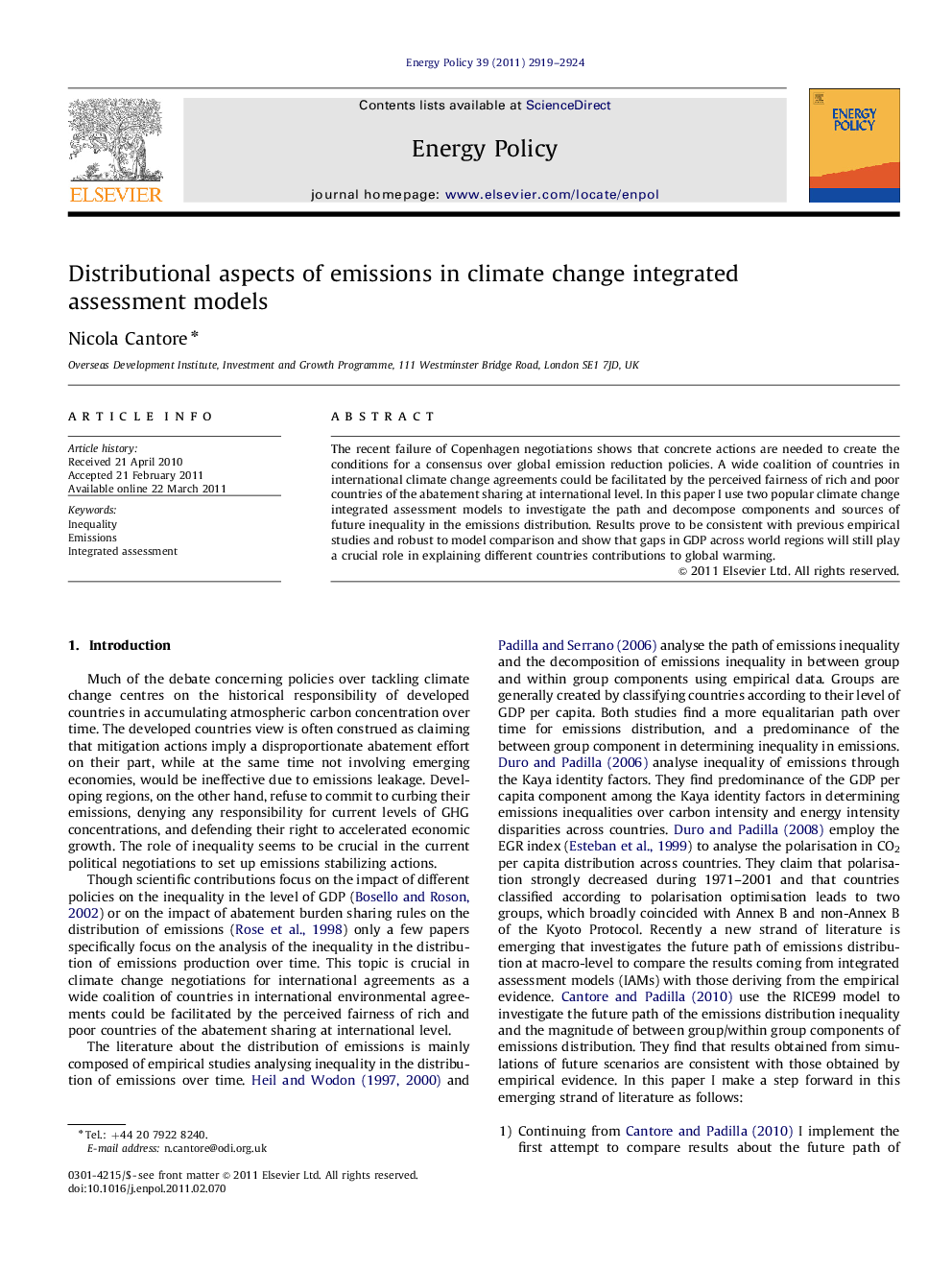| کد مقاله | کد نشریه | سال انتشار | مقاله انگلیسی | نسخه تمام متن |
|---|---|---|---|---|
| 995916 | 936279 | 2011 | 6 صفحه PDF | دانلود رایگان |

The recent failure of Copenhagen negotiations shows that concrete actions are needed to create the conditions for a consensus over global emission reduction policies. A wide coalition of countries in international climate change agreements could be facilitated by the perceived fairness of rich and poor countries of the abatement sharing at international level. In this paper I use two popular climate change integrated assessment models to investigate the path and decompose components and sources of future inequality in the emissions distribution. Results prove to be consistent with previous empirical studies and robust to model comparison and show that gaps in GDP across world regions will still play a crucial role in explaining different countries contributions to global warming.
Research highlights
► I implement a scenario analysis with two global climate change models.
► I analyse inequality in the distribution of emissions.
► I decompose emissions inequality components.
► I find that GDP per capita is the main Kaya identity source of emissions inequality.
► Current rich countries will mostly remain responsible for emissions inequality.
Journal: Energy Policy - Volume 39, Issue 5, May 2011, Pages 2919–2924